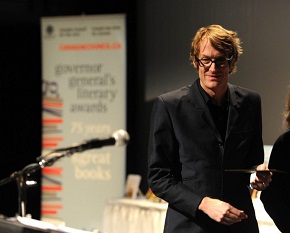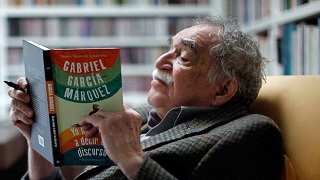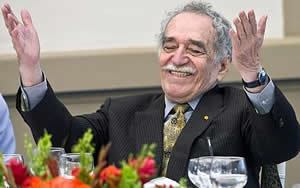De Canadese schrijver en scenarist Patrick deWitt werd geboren op 6 maart 1975 op Vancouver Island. Zie ook alle tags voor Patrick deWitt op dit blog.
Uit: Ablutions
“You are sitting in the magical Ford outside the bar when Junior the crack addict walks up and steps into the car and you both sit there watching the building. His smell is otherworldly, like a demon from deep in the earth’s crust, and he repeatedly passes the fiercest gas; he has been too long without his drugs and his body is causing a fuss. He does not greet you and you do not greet him; a rift has grown between you recently, or rather a rift has grown between Junior and everyone—he is in the worst way and the doormen say he has been robbing people with his machete blade after hours. You are not afraid of him and you do not believe he would ever do you any harm but you wish he were somewhere other than sitting at your side, wondering about the contents of your pockets.
He is fidgeting with a lighter and finally he says to you, “I need twenty dollars, man. I need it bad.” When you tell him you haven’t got any money he punches your dashboard and pouts, asking himself how long this torture might go on. You tell him to wait a minute and you enter the empty bar, retrieving twenty dollars from the safe. You walk it out to him and he is relieved to see this money but wants to know where it came from. When you tell him you stole it he looks worried and asks if you won’t get into trouble, which is insulting because you know he does not actually care one way or the other. “Do your drugs or don’t do your drugs,” you say. “Don’t stand around sobbing and bitching about it.” He straightens himself up and nods and hustles off to find his dealer. All through the night you are bothered by guilt and self-loathing for speaking with him so harshly and angered that such a man could conjure these emotions in you.
Discuss your feeling of wonder when the pilfered twenty dollars is not reported missing at the end of the night. Discuss your routine of thieving that stems from this incident, and the criminal spree you quickly embark upon.
Your plan is to keep an at-home stolen-monies pile, separate from your life-monies pile, and to cultivate it to a respectable size and then, at some key point, utilize it dramatically. Within a month you have three hundred dollars and you feel great relief and satisfaction, as if justice has been served, and you wonder why you waited until this late date to begin stealing from the owner, who you (on a whim) decide is a bad man who expects you to gladly damage your mind and body with this potentially deadly work of washing dishes in a bar, and who has never asked you how your feelings were doing even though it is fairly obvious that they, your feelings, have been hurt and are still hurting yet.”

Patrick deWitt (Vancouver Island, 6 maart 1975)








